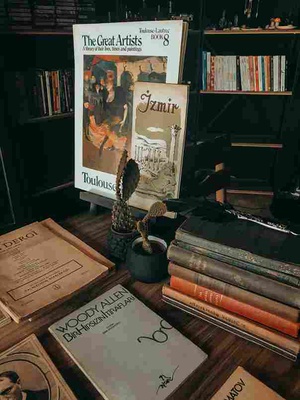Tips for Writing Historical Fiction and The Benefits of Buying Second Hand Books

Historic fiction is not for the faint of heart. Those who are frail, vulnerable, or unwilling to roll up their sleeves are not eligible. However, if you're looking for a literary challenge and enjoy history, this genre might be for you. Historical fiction, which is set at least 50 years in the past, challenges you to transport readers to a different period and place— one that they may not be familiar with firsthand. You must be willing to mix historical accuracy with fun if you accept this assignment. This is undoubtedly difficult.
If you're not careful, you'll wind up with a heartless encyclopedia entry or a cast of characters who are out of step with their historical environment. Here's how you can create historical fiction without going insane. We've also talked about the advantages of buying used books for bookworms.
Make extensive research, but be aware of what to include and exclude from your work.
One of the first stages toward becoming a historical fiction author is to conduct research. A word of caution: you're about to descend into a maze of research rabbit holes. There's a lot historical fiction authors need to know about everything from ancient silverware to medieval farming systems. Secondary materials are a good place to start, but primary sources, such as letters, newspaper stories, and diaries, are also important.
Don't be afraid to travel off the beaten path and visit some archives, and if you can, go to historical sites pertinent to your subject. If you really want to get into it, read period fiction, cook the food, and look for accurate recreations (or possibly recordings, depending on the era) of the music.
But here's the thing: you're going to undertake all of this research and then have to throw out 95% of it. Obviously, don't actually delete your notes. What I mean is that only a limited portion of your research should be included in your book. The sum of your research will make the world you build feel real and true, and you'll need to use little details sparingly to immerse the reader, but resist the need to brag and dump everything you've learned onto the page. Otherwise, you'll wind up with a boring history book rather than an interesting historical novel.
Create a world
Worldbuilding adds authenticity to historical fiction books and provides readers an incentive to return. Include historical information about daily life in the world where your novel takes place to provide historical context to readers, and mix exotic details with common, relatable ones to keep the story grounded. However, don't just add information for the sake of adding it; make sure that every aspect of your world-building contributes to the plot.
Include characters who defy historical rules and standards, but don't forget to provide background.
People who defied societal conventions, overcome entrenched political and economic barriers, or challenged the dominant knowledge of their period can be found throughout history. It may be argued that not including people like them in your historical fiction would be inaccurate. You lose the change, difference, and non-conformity that have always been a part of history if every single one of your characters perfectly encapsulates the prevalent culture of their time.
The majority of the issues with portraying nonconformist personalities arise when their nonconformity is portrayed as typical rather than unique. You must provide context to convince the reader that your abnormalities are real. That means demonstrating the challenges, strife, and exclusion your characters encounter. By doing so, you're indirectly acknowledging that they're out of the ordinary for their time, while persuading the reader that they're just as real as the rest of the story.
Don't get caught up in the conversation.
The vocabulary and grammatical structures of different historical periods change. Include a few words and phrases here and there to help the reader understand the historical setting, but not so many that the story becomes difficult to read.
If accuracy will cause disbelief, don't insist on it (but here's a workaround if you absolutely must).
Writing historical fiction has the conundrum of having to forgo accuracy for authenticity at times. When you come across something that happened in history but is simply too unbelievable for the present reader to believe, it's usually best to leave it out. Whether you like it or not, the impression of correctness is more important than real accuracy when it comes to telling a good tale.
If you really must include some aspect of history in your novel but are afraid the reader won't believe you, there is one method to gently disarm them: incorporate their skepticism into the plot. At least one character should find it as unbelievable as you expect the reader will, and another character should correct them. This is a subtle nod to the reader, acknowledging their disbelief and reminding them that, sure, this did exist. This can work in a pinch.
So those are my historical fiction writing dos and don'ts. If you're considering trying the genre or have already started but are feeling overwhelmed, we hope this advice will help you move forward with confidence. Nobody ever said writing was easy, and historical fiction is a more difficult genre to master than others, but it's well worth the effort.
Make history a seamless part of the plot.
A French aristocrat in his carriage runs over a child on the street in Charles Dickens' A Tale of Two Cities, before giving a euro to the distraught father and driving away. The scenario accurately captures the emotions and forces that led to the French Revolution.
This scene demonstrates how to strike a balance between history and narrative. In these lines, the aristocratic class's chilly indifference, disparity not only in riches but also in the application of justice, and the degradation of the common person's humanity all live and breathe. Despite this, the scenario does not sum up the causes of the French Revolution in a detached manner. Instead, history is woven into the narrative, and Dickens gives us a history lesson without our knowledge.
Exercising your reader's patience by devoting huge parts of your novel to exposition or dwelling on historical details for their own sake will quickly wear cheval. Instead, take Dickens' advice and consider how you might depict history rather than meticulously recounting it, and try to organically incorporate the tiny elements. That means you shouldn't send your character to a dinner merely to show off all the historical food you learned about, or to an armory just to list all the weaponry you found. Such details must organically fit around the plot, not the other way around.
Incorporate imaginary characters.
You can use some creative license even if you're writing about true occurrences. Adding fictional characters to complement those based on historical figures can help move the story forward, inject personality, and keep it entertaining.
Second Hand Books
What could be better than getting a large discount on a book you've always desired simply because it's been previously owned? Used books make excellent gifts or for yourself, and many people give books they no longer want or need. This is an excellent way to add to your collection. This is also an excellent way to obtain your college texts. Purchasing used books, whether in a used book store or online, has various advantages. Buying used books, especially if you're a student, is an excellent way to save money.
Why Should You Purchase Second Hand Books?
Second hand books are environmentally friendly.
One of the most major benefits of buying used books is that it decreases the need for new books to be printed, causing less environmental impact. It all starts with one person deciding to give a book or textbook they no longer use, and it may make a big difference. This is an excellent way to contribute to the preservation of our environment.
The cost of second hand books is lower.
If you don't have a lot of money or simply don't like buying brand new books at retail prices, second hand books are a good option to get around this difficulty. When it comes to vintage second hand books, you don't have to pay full price to get what you want. You can not only get a better deal on second hand books, but you can also sell them once you've finished them.
When it comes to second hand books, there is no need to overpack.
Have you ever bought something new and tried to open it at home only to discover that there is too much plastic to cut through? Perhaps you have placed an internet buy and are having trouble locating the item among the cardboard and packing peanuts? New books are frequently packaged in some way, and not all of it is recyclable.
One of the benefits of buying second hand books is that there is no waste or mess. The old used books you purchase will not come with all of the unnecessary packaging that is generally discarded or that requires a crowbar to open. You can begin reading your new second hand books without being concerned about the package.
Finding unusual second hand books
Half the excitement of thrifting, scouring consignment shops, or strolling into a vintage store is the thrill of the hunt of old used books. When you buy new books, you usually have a choice of mass-produced volumes that you and your neighbors may already have. Why should you try to fit in with the crowd? In addition to the obvious advantages of buying gently used second hand books online, you have the added benefit of owning second hand books that you won't find anywhere else. 6 one-of-a-kind artworks
You could earn money by selling used books.
There's no better time than now to clean out your closets, dust up your old bookcases, and prepare them to sell for a profit. There are websites where you may buy used or second hand books as well as sell the ones you currently own. This is an excellent method to earn extra money in your leisure time. For every second hand book that you are looking for, there are numerous people looking for books that you may already own. This type of book trading allows you to keep your library current at all times.
This is without a doubt a win-win situation. That's all there is to it. All you have to do if you want to sell books is browse for sites that take used books. Then all you have to do is list your books for sale and wait for buyers to arrive at your virtual door. Books aren't the only type of stuff you may buy and sell, believe it or not.
When it's time to sell your old books, do some research to find out what the going rates are for the books you have. You may be sitting on your bookshelves with a masterpiece worth thousands of dollars collecting dust and not even realize it. Who knows if you're interested in buying something? You might come discover a second hand book you've always wanted and have something valuable to pass down to your children.



Comments